5th Engineering Graduate Research Conference (EGRC)
The EGCC, EAT donors and our partners hope that you will use the EGR Conference as an opportunity to push yourselves to keep our college at the forefront of engineering education and share the importance of your research to the community. You will even have the chance to meet people from different disciplines to further discuss your research!
This event is open to all graduate students (Masters and Ph.D.)
Academic and industrial juries will evaluate the winners based on research quality, results, and communication skills.
Abstract submission deadline: August 23rd 2024
Best Posters will be awarded $500, $400, $300, $200$, $100, and More in Cash Prizes and Gifts
To register, please click below👇
Winners
1st Place: Sandya Chandran
2nd Place: Xavier Tabil
3rd Place: Parvaneh Koranian
4th Place: Hira Syeda
5th Place: Sara Nath
Schedule
| 10:00 - 11:00 | Guest Arrivial, Swag Bag Pick-up & Poster Set-up | ||
| 11:00 | Welcoming and Introduction to Engineering Graduate Research Conference | ||
| 11:10 | Welcome Message from the Dean of Engineering | ||
| 11:30 | OPUS Keynote Speech - Anuradha Tandukar | ||
| 11:45 | SIGMA Demo - Tate Cao | ||
| 12:00 - 12:30 | Lunch | ||
| 12:30 - 2:30 | Poster Judging | ||
| 2:30 | Breakout Session for Networking and Winner Determination | ||
| 3:00 | Winner Announcement | ||
| 3:30 | End of Event |
List of accepted posters
| # | Name | Title | |
| 1 | Abbas Fazel Anvari-Yazdi | Efficiency and Microstructural Characterization of Decellularized Porcine Uterine for Regenerative Medicine |
|
| 2 | Farzan Hayati | Stormwater decontamination using photocatalysis materials | |
| 3 | Anukul Basnet | Modelling Winter Hydrological Processes in the Prairies to Simulate Wheat Yield |
|
| 4 | Kiani Karimi Shahmarvandi | Assessment of Optical Coherence Tomography (OCT) as a Non-Destructive Method for Seed Coat Thickness Measurement |
|
| 5 | Priyanka Tirumareddy | Improving Biofuel Quality Using Char-Based NiMo Catalysts in Hydrotreatment | |
| 6 | Batool Hossinpour Ganjaroudi | Cell encapsulation | |
| 7 | Hira Syeda | Impact of Dialysis Membrane Exposure on Epigenetic Methylation Patterns in Hemodialysis Patients: using Genomic, Ex-vivo, and In-situ Synchrotron Investigations | |
| 8 | Sadman Sakib | Development of Sustainable Composite Materials for Ventilation Ducts in Underground Mining: A Systematic Approach to Agricultural Waste Management |
|
| 9 | Dinesha Thuvaragan | Enhancing PLA-Based Bioplastics through Material Modifications and Advanced Analytical Techniques | |
| 10 | Bashu Gautam | Renewable Natural Gas Production from the Flax straw | |
| 11 | Garret Churchill | Screening Biocrude Production via Hydrothermal Liquefaction of Canadian Lignocellulosic Residues for Renewable Transportation Fuel Production | |
| 12 | Ganapathy Subramanian Meenakshi Sundaram | Application of Tribo-Electrostatic Separation for the Dry Fractionation of Food Materials | |
| 13 | Xavier Tabil | The Printability of Alginate-Chitosan Biomaterials for Tissue Scaffolds | |
| 14 | Simon Kwao | Impact of Gas Flux on Reactor Fouling during the Hydrotreating of Bitumen-Derived Gas Oil | |
| 15 | Parvaneh Koranian | Enhancing Glycerol Esterification Using Activated Carbon Support Derived from Agricultural Waste | |
| 16 | Sara Nath | Co-Hydrothermal Liquefaction of Waste Cooking Oil and Agricultural Crop Straws for Bio-Crude Oil Production: Towards Sustainable Biomass Valorization | |
| 17 | Sandhya Chandran | Locating faults in distribution power systems | |
| 18 | Ebrahim Fard | An FPGA-Friendly Modified Activation Functions for Accerlerating Recurrent Neural Networks | |
| 19 | Ravi Patel | Biomaterials added to cementitious materials: An approach to develop green concrete | |
| 20 | Shabnam Izadpanah | Impact of Ultrasonic Cavitation on Flavor Profile of Pea Protein | |
| 21 | Shivangi Jha | Removal of perfluorooctanoate (PFOA) by optimized Camelina meal biochar using Central composite design-response surface methodology (CCD-RSM) | |
| 22 | Alimul Haque Khan | Autonomous Drone Recharging: A Step Towards Sustainable UAV Operations | |
| 23 | Lizette Villa Alcaraz | Nanobubble-Enhanced Ozone Catalytic Processes: Targetting Pharmaceutical Pollutants SMX and Diatrizoate using Nickel Foam Catalysts | |
| 24 | Lorena Giselle Rodriguez Beas | Enhanced Catalytic Ozonation with Ozone Nanobubbles: Remediation of Pharmeceutical Pollutants Sulfamethoxazole (SMX) and Diatrizoate Using Ni Foam Catalysts | |
| 25 | Sumana Majumder | Tunicate-derived cellulose Nanocrystal as a Sustainable Stabilizer for Oil-in-Water Pickering Emulsions | |
| 26 | Danyil Dmytriiev | Investigation of X-ray lithography process parameters for sub-micrometer test structures based on multi-layer polymer sandwiches | |
List of judges
 |
Christopher Bowman, PhD Tech Transfer Manager, Innovation Mobilization and Partnerships Chris holds a Ph.D. in applied mathematics from the University of Arizona and has extensive experience in supporting research commercialization and collaboration in academic, government and private sectors. He has been a technology transfer manager at the UofS for seven years, he focuses on finding, or developing partners that can take university IP and advance it to market-ready products or services. He is responsible for an expanding portfolio including Engineering, Physical Sciences, Information and Communications Technologies and Agriculture. |
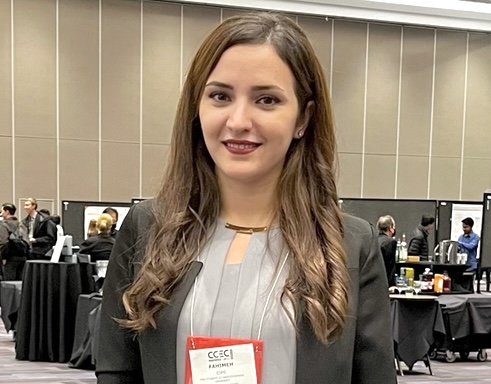 |
Fahimeh Esmi, B.Sc., M.Sc., Ph.D. Postdoctoral Researcher Fahimeh Esmi is a Postdoctoral Researcher at the University of Saskatchewan's College of Engineering, where she focuses on developing sustainable chemical processes. Her expertise lies in advanced catalytic systems for biodiesel production and innovative air and water purification technologies. Fahimeh has contributed to over a dozen peer-reviewed publications and book chapters, showcasing her research at prestigious conferences and earning awards such as the Best Poster Presentation at the Canadian Chemical Engineering Conference. She holds a B.Sc. and M.Sc. in Chemical Engineering from the University of Tehran and a Ph.D. in Chemical Engineering from the University of Saskatchewan. In addition to her academic pursuits, she is involved in voluntary activities and enjoys organizing workshops for students. |
 |
Ramakrishna (Rama) Gokaraju, Ph.D. Professor, Electrical and Chemical Engineering Dr. Ramakrishna (Rama) Gokaraju received his Bachelor of Engineering degree (with Distinction) in Electrical and Electronics Engineering from the Regional Engineering College (National Institute of Technology), Trichy, India in April 1992. He obtained M.Sc. and Ph.D. degrees in Electrical & Computer Engineering from the University of Calgary, Calgary, Canada in June 1996 and May 2000, respectively. He joined the Department of Electrical & Computer Engineering at the University of Saskatchewan as an Assistant Professor in July 2003, received tenure/Associate Professorship in July 2009, and became a professor from July 2015. During his sabbatical leave (2009-2010 academic year), Dr. Gokaraju was a Visiting Professor in the Department of Electrical & Computer Engineering, University of Manitoba, Winnipeg, Canada. During his sabbatical leave (Jan-June, 2014), he was a visiting professor with Power Research & Development Consultants (PRDC), Bangalore, India, and the University of Queensland, Brisbane, Australia. In his sabbatical from January 1, 2018, to June 30, 2018, he was a Visiting Professor in the Department of Electrical Engineering at the Indian Institute of Technology, Kanpur, India. Dr. Gokaraju's research is in the area of power system protection and control, smart grid applications, and sustainable energy systems. His current area of research are in High-Speed Digital Relaying, PMU based solutions for Wide Area Protection & Transient Stability Protection, Fault Location, Dynamic Phasor Modelling of Wind Generators & PV Systems, Interrelated Phenomenon Related to Generator Protection & Control, and Sustainable Energy Systems (including nuclear power). Dr. Gokaraju has completed 8 PhD students and 25 plus Master's students. He has published 80 plus papers in major journals and international conferences. He is a registered professional engineer in the Province of Saskatchewan. |
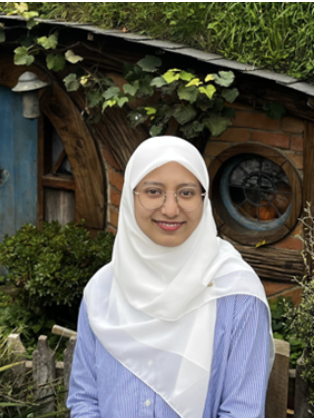 |
Nuraina Dahlan, BSc., PhD. Postdoctoral Fellow Nuraina is an early career researcher and biomaterial scientist with a keen interest in advanced 3D tissue models. She graduated with a PhD in Materials Science from Monash University in 2020. Nuraina is currently a postdoctoral fellow supported by the Living Skies Postdoctoral Fellowship. She works collaboratively between Vaccine Infectious Disease Organization (VIDO) and Division of Biomedical Engineering, Univeristy of Saskatchewan. Before joining VIDO, Nuraina was employed as a researcher at the Biomedical Engineering Department, University of Malaya, Malaysia exploring cardiac scaffolds and microfluidic sensing systems as biomedical diagnostic tools. In her current role, Nuraina focuses on developing advanced 3D lung models using bioprinting technologies to study interactions between highly infectious respiratory pathogens and host microenvironments. Her area of interests include functional biomaterials, tissue engineering, 3D printing and organ chips. |
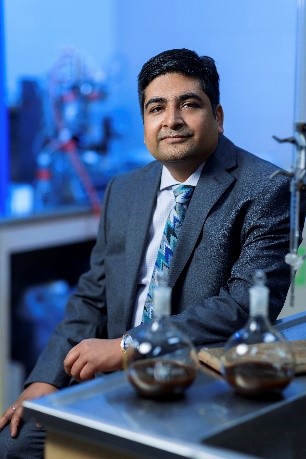 |
Bishnu Acharya, PhD. Saskatchewan Ministry of Agriculture Chair in Bioprocess Engineering Associate Professor Dr. Bishnu Acharya is an Associate Professor in the Department of Chemical and Biological Engineering at the University of Saskatchewan and the Saskatchewan Ministry of Agriculture Research Chair in Bioprocess Engineering. His research expertise lies in the area of bioprocessing and conversion, particularly in the emerging area of conversion of biomass to bioproducts for chemical, material, and energy applications by adopting a circular bioeconomy approach. Dr. Acharya’s research investigates biomass characterization, thermochemical (torrefaction, hydrothermal, pyrolysis, gasification, combustion), biological (fermentation and anaerobic digestion) and chemical synthesis processes for the conversion of low value biomass to high value bioproducts. He is also developing research capacity to analyze the biopolymer and biobased materials at the University of Saskatchewan. Before joining University of Saskatchewan, he worked at the University of Prince Edward Island. Prior to that he worked for Greenfield Research Incorporated in Halifax, Canada as General Manager - Projects where he led several design and training projects for the development of clean technology. Dr. Acharya is awarded with Engineers PEI – Engineering Excellence Award (2019) for his professional contribution towards the development of innovative bioproducts from nuisance biomass. His scholarly achievements are recognized with UPEI Faculty Association - Scholarly Achievement Award (2019), and Graduate Faculty Appreciation Award (2018). Dr. Acharya research work has been published in 5 book chapters, 70 journal articles and several conferences. He has 1 US provisional patent filed (with another under consideration). In last 7 years, he has supervised/co-supervised more than 40 HQP and has received around 3 million dollars of funding to support his research activities. Dr. Acharya is also a founding member and scientific advisor of a spin off company that focuses on the commercialization of tunicate-based cellulose nanomaterials. He has bachelor’s degree in Mechanical Engineering from Tribhuvan University - Nepal, Masters in Energy Technology from Asian Institute of Technology – Thailand and Doctoral Degree in Mechanical Engineering from Dalhousie University – Canada. |
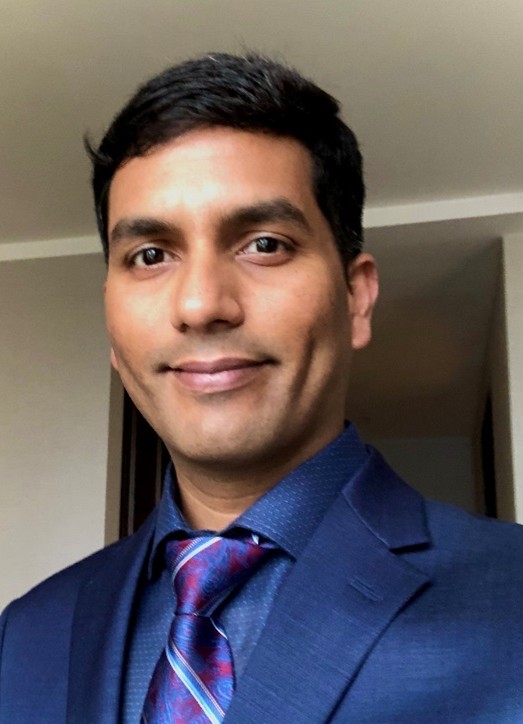 |
Nandhakishore Rajagopalan, PhD. National Research Council of Canada Dr. Nandhakishore Rajagopalan is the Team Lead for the Future Agri-food Science and Technologies team at the National Research Council of Canada (NRC), Saskatoon. He obtained a PhD degree from the National University of Singapore in 2008 and carried out his Post-Doctoral studies at the University of Heidelberg, Germany. Dr. Rajagopalan joined the NRC as a Research Officer in 2011. He was appointed as an Adjunct Professor at the Department of Chemical and Biological Engineering, College of Engineering at the University of Saskatchewan in November 2021. He has over 20 publications in reputed peer-reviewed scientific journals and holds a patent for the identification of a peptide with biopharmaceutical applications. His scientific accomplishments include the development of a potent synthetic analog of the plant hormone abscisic acid and the characterization of a plant membrane transport protein that provides durable resistance against leaf rust disease in wheat. He has received multiple international awards and recognition, such as, the Young Scientist Award from the Human Proteome Organization (HUPO), the Boehringer Ingelheim Fonds Award and the Alexander von Humboldt Foundation Fellowship. Recently, under NRC’s Sustainable Protein Production strategy, he has built a team to establish capabilities in food processing technology development, food chemistry and foodomics. |
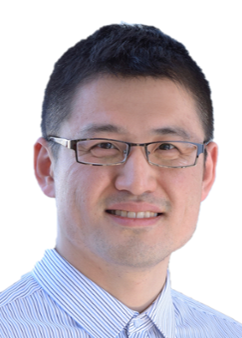 |
Tate N. Cao, P.Eng, MBA Assistant Professor Tate N. Cao is an Assistant Professor in the Ron and Jane Graham School of Professional Development at the University of Saskatchewan. He is the La Borde Chair in Engineering Entrepreneurship and teaches courses on engineering technology management, product design, and entrepreneurship. His research interests include 3D printing in tissue engineering and healthcare, smart farming technologies, and entrepreneurial practices. He has founded and directed the SIGMA Educational Skill Accelerator program and serves on several boards, including the Asian American Innovation Alliance, Co. Learn, Tech Innovation and Engineering Entrepreneurship group at CEEA, and the Pan Canadian Smart Farm Network. Prior to joining USask, he practiced intellectual property law and built and managed startup companies. Prof. Cao received his bachelor's degree in Biomedical Engineering from the Beijing Institute of Technology and his Master's in Biomedical Engineering and MBA from the University of Saskatchewan. He is one of the six USask Sustainability Faculty Fellow and leads the Smart Farming Initiative at the College of Engineering. |
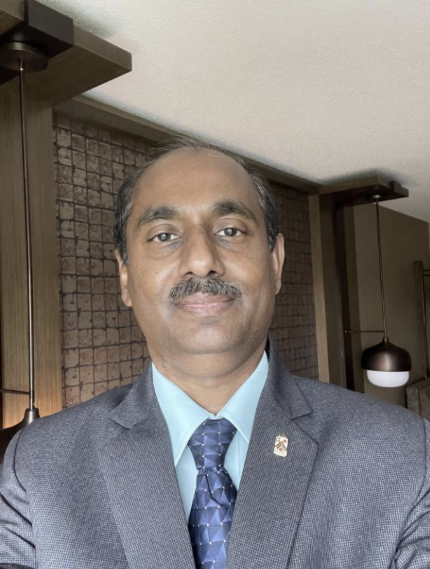 |
Venkatesh Meda, PhD. Professor and Graduate Chair, BLE Dr. Venkatesh Meda, P.Eng., is currently a Professor at the Chemical and Biological Engineering Department of College of Engineering, University of Saskatchewan, Canada. He began as a faculty member in 2002 after completing his post-graduate degrees in agriculture & bioresource engineering (M.Sc: 1996; PhD: 2002) from McGill University, Canada. He has established his research and development effort on ‘post-harvest and value added processing’ of agri-foods including biological materials through the utilization of electro-technologies and enhanced inter-disciplinary collaboration at USask. His expertise in utilization of microwave, infra-red, and UV energy in agri-foods has been recognized worldwide. He has established leadership in areas related to ‘microwave material processing’ (e.g, drying) research capabilities, globally. He has supervised over 30 graduate students, PDFs, visiting faculty/scholars from India, Brazil, Iran, China, Cameroon, and Turkey. Examples of projects that Dr. Meda has provided leadership role are: a) value-added engineering and management of agri-food systems b) thermal and non-thermal processing of agricultural, food and bioproducts c) utilization and processing (drying, extraction, dry fractionation) of plant co-products d) process optimization for food safety & quality; and e) innovative technology for food waste reduction and management strategy He is recognized for his expertise in providing strategic leadership, business entrpreneurship education, Internation R & D partnerships and Innovation Enterprise skills related to Agri-food and material processing sector (e.g, plant-based proteins) in the overall value-chain economy. He was recently recognized as a Fellow of the Engineering Institute of Canada and Engineers Canada (EIC, EC), and received a 2022 Educator of the Year award by Saskatoon Engineering Society (SES). Dr. Meda was a recipient of the Usask’s J.W. George Ivany Internationalization Award in 2022-23. |
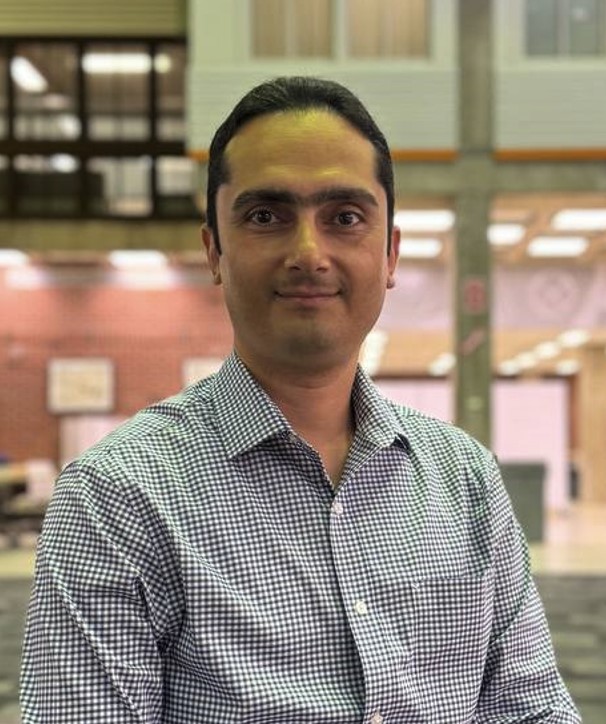 |
Mohammad Mahdi A. Shirazi, PhD. Postdoctoral Fellow Sessional Lecturer Mohammad Mahdi A. Shirazi graduated with a Ph.D. degree in Chemical Engineering in 2020, and he is currently a Sessional Lecturer and Living Skies PDF at University of Saskatchewan, Canada. Before this, he worked as a PDF at Aalborg University, Denmark, where he developed “membrane distillation crystallization” technology for recovery of pure water and minerals from brines. Mohammad already worked as an R&D expert, researcher, lecturer, and advisor with different companies and research institutes for water treatment, desalination, and resource recovery projects since 2012. He has extensive experience in developing research proposals and have already secured a number of highly competitive funds. He has prior expertise in membrane technologies for water treatment and resource recovery, advanced analytical techniques, project management and science communication. In addition to technology development on a commercial scale, he is also keen on connecting people, technology, and innovative ideas to create a green and more sustainable society. He has co-authored more than 50 papers and book chapters in high-ranked journals and reference books. He also had the privilege to publish 2 edited books (by the Elsevier publisher) in 2023. |
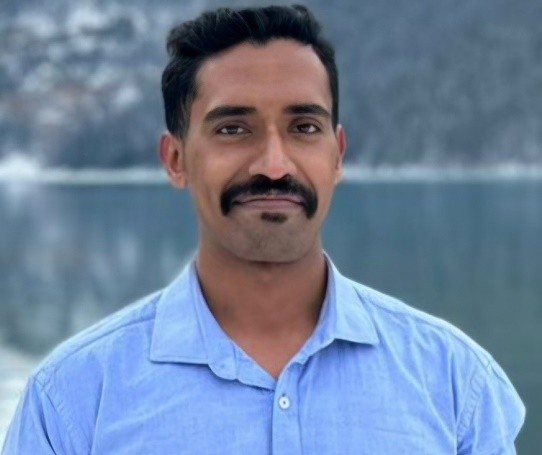 |
Sathyapal Churipard R., PhD. Postdoctoral Fellow Dr. Sathyapal Churipard R. (Bengaluru, India, 1992) completed his B.Sc. and M.Sc. at Bangalore University, India. He obtained his Ph.D. at Poornaprajna Institute of Scientific Research, India (2021). He worked as a Research Associate at Jawaharlal Nehru Centre for Advanced Scientific Research (JNCASR, 2021-2022). He is currently working as a Post Doctoral Fellow at the Department of Chemical and Biological Engineering with Prof. Ajay K. Dalai. His research is focused on designing heterogeneous catalysts for the conversion of plastics to liquid fuels and hydrogen. Additionally, he is involved in developing adsorbents and catalysts for CO2 capture and conversion. He has published 16 research articles in internationally reputed journals with an average impact factor of 9.4. He has also contributed to three book chapters and his research work has been cited 448 times to date |

